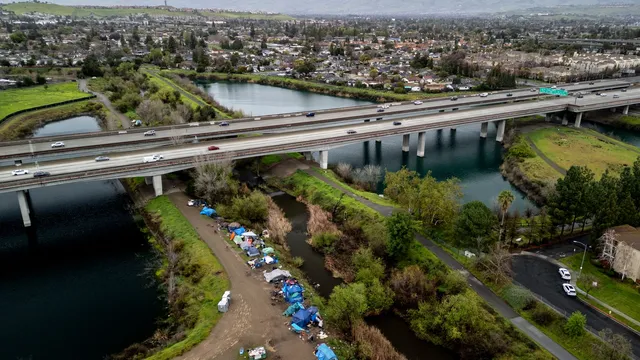
San Jose considers arresting homeless individuals after shelter refusals
2025-06-12 00:46- The City Council of San Jose is voting on a proposal concerning homeless individuals.
- The proposal allows for potential arrests if three offers of shelter are declined.
- There is heated debate about the effectiveness and ethics of this approach.
Express your sentiment!
Insights
In San Jose, California, the City Council is currently addressing a controversial proposal regarding homelessness, demonstrating growing frustrations towards the issue of encampments and homelessness in the Silicon Valley area. The proposal aims to permit the arrest of homeless individuals who decline to accept offers of shelter after three attempts. San Jose Mayor Matt Mahan advocates this measure as part of a broader effort to encourage accountability among those who refuse assistance while the city is working on increasing shelter availability. The mayor maintains that the majority of homeless people do accept offers of shelter. Nevertheless, concern exists regarding the potential criminalization of homelessness and the implications of such actions. Community advocates emphasize that enforcing punitive measures could exacerbate the struggles faced by those with mental health issues and addictions. They argue that the criminal justice system may not be the appropriate avenue for addressing the complexities involved in homelessness. Opponents, including Otto Lee, president of the Santa Clara County Board of Supervisors, emphasize the need for more housing, beds, and services instead of punitive measures. While pushing for the proposal, Mahan acknowledges the city's insufficient number of shelter beds and stated that individuals should not face punishment if adequate accommodations are unavailable. There is a significant discourse among officials and advocates reflecting differing perspectives on managing homelessness, accountability, and the necessity for a compassionate and supportive approach rather than one that relies on punishment.
Contexts
California's homeless laws represent a complex and evolving landscape aimed at addressing the state's significant homelessness crisis. With over 161,000 individuals experiencing homelessness as of the latest data, the state's legal framework has sought to provide solutions while balancing the rights of both homeless individuals and the broader community. Various legislative efforts have been made to bolster services, enhance shelter availability, and improve mental health and substance use disorder treatment. Laws like the Homeless Housing, Assistance, and Prevention (HHAP) program have allocated substantial resources to local governments to implement innovative solutions tailored to regional needs and ensure support for the most vulnerable populations. In addition to supportive housing initiatives, California has enacted laws related to public space use to manage homelessness in urban environments. The California Anti-Camping Law, which prohibits camping in public spaces under certain circumstances, aims to ensure public safety while prompting the need for cities to offer alternatives such as sanctioned encampments or emergency shelter. While these measures are designed to maintain public order, they have faced criticism from advocates arguing that they worsen the plight of the homeless by criminalizing their existence without offering sufficient solutions, including adequate affordable housing options. The legal framework surrounding homelessness in California also intersects with broader social justice issues. Advocacy groups emphasize the critical need for systemic reforms that address underlying causes such as economic inequality, lack of affordable housing, and inadequate mental health resources. Additionally, California's Proposition 63, which enacted a tax on high-income earners to enhance mental health services, underscores the necessity of treating mental health as a public health priority and not solely a law enforcement issue. Efforts to decriminalize homelessness are gaining traction as community leaders push for more compassionate approaches to this complex social issue. Looking forward, ongoing discussions around California's homelessness laws signal potential shifts in policy aimed at creating more inclusive solutions. Legislative proposals continue to explore increasing the supply of affordable housing, reforms related to zoning laws, and enhancing collaborative efforts between governmental and non-governmental organizations. As the state grapples with this crisis, stakeholders emphasize the importance of addressing the root causes of homelessness, ensuring that legal measures not only protect public spaces but also respect the dignity and rights of those experiencing homelessness. The effectiveness of California's approach will ultimately depend on its ability to strike a balance between community needs and humanitarian considerations.